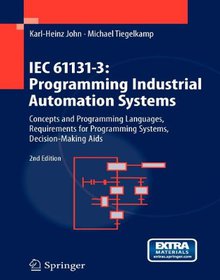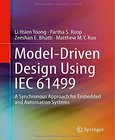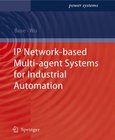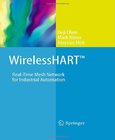IEC 61131-3 Programming Industrial Automation Systems
Concepts and Programming Languages, Requirements for Programming Systems, Decision-Making Aids
2nd Edition

Book Details:
| Publisher: | Springer |
| Series: | Springer |
| Author: | Karl-Heinz John |
| Edition: | 2 |
| ISBN-10: | 3642120148 |
| ISBN-13: | 9783642120145 |
| Pages: | 390 |
| Published: | Sep 10 2010 |
| Posted: | Apr 20 2015 |
| Language: | English |
| Book format: | |
| Book size: | 1.86 MB |
Book Description:
The rapid advances in performance and miniaturisation in microtechnology are constantly opening up new markets for the programmable logic controller (PLC). Specially designed controller hardware or PC-based controllers, extended by hardware and software with real-time capability, now control highly complex automation processes. This has been extended by the new subject of safe- related controllers, aimed at preventing injury by machines during the production process. The different types of PLC cover a wide task spectrum - ranging from small network node computers and distributed compact units right up to modular, fau- tolerant, high-performance PLCs. They differ in performance characteristics such as processing speed, networking ability or the selection of I/O modules they support. Throughout this book, the term PLC is used to refer to the technology as a whole, both hardware and software, and not merely to the hardware architecture. The IEC61131 programming languages can be used for programming classical PLCs, embedded controllers, industrial PCs and even standard PCs, if suitable hardware (e.g. fieldbus board) for connecting sensors and actors is available.
Download Link:
Related Books:
Model-Driven Design Using IEC 61499
A Synchronous Approach for Embedded and Automation Systems
This book describes a novel approach for the design of embedded systems and industrial automation systems, using a unified model-driven approach that is applicable in both domains. The authors illustrate their methodology, using the IEC 61499 standard as the main vehicle for specification, verification, static timing analysis and automated code synthesis. The well-known synchronous approach is used as the main vehicle for defining an unambiguous semantics that ensures determinism and deadlock freedom. The proposed approach also ensures very efficient implementations either on small-scale embedded devices or on industry-scale programmable automation controllers (PACs). It can be used for both centralized and distributed implementations. Significantly,...
IP Network-based Multi-agent Systems for Industrial Automation
Information Management, Condition Monitoring and Control of Power Systems
This book details the use of the Internet protocol suite and multi-agent systems for the information management, online monitoring, and control of distributed power system substations. It proposes an open architecture for information management and control, based on the concepts of multi-agent systems and mobile agents. Mobile agents are applied to the retrieval and analysis of substation data and to remote operator intervention....
WirelessHART
Real-Time Mesh Network for Industrial Automation
The process control industry has seen generations of technology advancement, from pneumatic communication to electrical communication to electronic c- munication, from centralized control to distributed control. At the center of todays distributed control systems are operator workstations. These operator wo- stations provide the connection between those overseeing and running plant operations to the process itself. With each new generation of products the operator workstation has become increasingly more intelligent. Newer applications provide advanced alarming, control, and diagnostics. Behind all of these applications are smarter devices. These smart devices provide greater process insight, reduce en- neering costs, and contribute to improving the ...
2007 - 2021 © eBooks-IT.org



